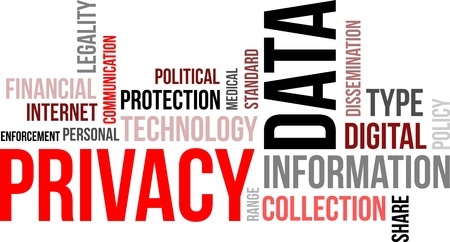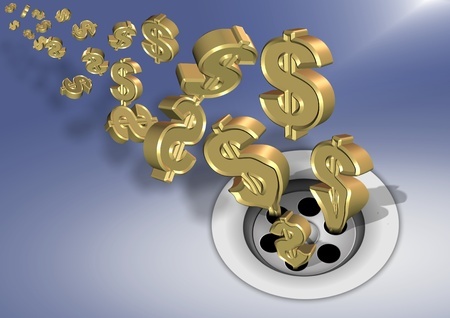Are you just starting a YouTube channel and wondering what are the 5 legal tips and tricks hurdles are that you may need to face if you're trying to build your business or brand on YouTube? All right, well, stick with me because today I'm going to share with you the five most common legal issues that YouTubers face when trying to build their brand into a legitimate business using this platform.
Today's question comes from Powell TV, who writes, “I'm starting a YouTube-based entertainment business, but I'm also going to have a standalone website that will expand on the content from my YouTube channel, but more e-commerce. I'm getting a DBA, then I'm going to get an LLC soon. What are some of the legal issues YouTubers face when building their brand into a business?”
All right, I want to just take a minute and thank you, Powell TV, for that wonderful question. It is an excellent question and something that a lot of people ask in different ways. There are there five main legal considerations that you need to be thinking about when you're starting a channel on YouTube, and I'm going to take these one at a time.
Starting a Youtube Channel Tip #1 – Affiliate Disclosures
The first one you need to think about our affiliate disclosures. For a lot of you that are building a business or brand on YouTube, one of the main ways that people make money on YouTube is through affiliate links. I've got affiliate links. If you want to buy any of the products and things that I recommend, that is a great way to make money on YouTube. There's some very notable channels, like Sean Cannell and Benji Travis, have basically said that this is the main way they started their YouTube channel.
But if you're going to do affiliate links on your channel and in your videos and in your descriptions, you have to follow the FTC rules. The FTC stands for the Federal Trade Commission. They've got very specific rules about what you can and can't do when it comes to affiliate links. First off, you must clearly disclose that you've got an affiliate link or an affiliate relationship whenever you post an affiliate link on your channel, whether that link be in a card up here, or whether that be something in the description, or if you're just talking about a product in your video with telling people to go to the description. Regardless of how you do it, you need to make sure it's clear that that is an affiliate relationship, that you are going to get paid for promoting that product if somebody buys.
Now, if you take this a step further and you actually start doing branded deals, which is where brands come to you and pay you to do a brand deal for them, then there's even more disclosures that need to be made. Usually, you're going to want to have a contract with that brand to make sure it's clear what type of disclosures are going to need to be made and how you're going to tell the general public about the brand deal that you're doing.
Again, this is something that usually you're going to say at the beginning of the video, something like this video is sponsored by whatever the company is, letting it be known that they paid you to create the video, ideally to promote their product. That's kind of what the goal is, right?
Starting a Youtube Channel Tip #2 – Forming an LLC
The second legal consideration that you need to think about when you're starting your YouTube channel is forming some sort of business entity. The most common business entity is an LLC. I've done lots of videos about that. We typically recommend that you don't necessarily start your LLC until you start earning enough money to at least pay the costs of starting an LLC. Usually, it's between several hundred dollars, sometimes in some states, it's a lot more than that, it just depends. But I usually recommend that you at least have enough money in the bank from the earnings that you're getting off your channel to pay for the filing fees before you start your LLC, just to make sure it's viable, because if you're not making money, it's a hobby and you don't need an LLC for a hobby.
As Powell TV wrote in the question, he said he was starting with a DBA. That's a great way to do it. That way, at least you've reserved your business name with the state where you're going to be filing your LLC and you can do that. Usually, it's very inexpensive to file a DBA or some sort of trade name with your state so that they know that that's the business, they're going to be operating under that business name.
Starting a Youtube Channel Tip #3 – Legal Disclosures
Now, aside from the affiliate disclaimers I talked about in point number one, you also have to do what are called legal disclaimers, and that's tip number three. If you're going to be giving medical advice, if you're going to be giving some sort of accounting, tax, legal type of guidance or advice like I do on this channel, or if you're going to be doing some other type of professional advice, or maybe you're going to be giving people tips on how to diet or tips on how to exercise or tips on how to fix their car, anything like that, you want to make sure you have appropriate legal disclaimers in your videos and in your descriptions.
The reason for this being that if somebody follows your advice and they get hurt doing what you're telling them to do, that they can't come back and sue you, or at least if they do sue you, you have a defense, saying, “Hey, I gave you a disclaimer. I told you don't necessarily follow my advice, it could be wrong. It's your fault that you messed up.” That's the third thing, is make sure you have the appropriate legal disclaimers. You're going to have those in your videos and the descriptions as well as on the website. If you have a separate blog or something like that and you're going to be posting your videos there as well, you want to make sure you have those disclaimers on your website also.
Starting a Youtube Channel Tip #4 – Protect Your IP
All right, so going back to Powell TV and the question that they posed, if you are building a brand on YouTube, then chances are you want to think about perhaps getting your trademark registered. The reason we recommend doing this early is because it typically takes between 12 to 18 months to register a trademark. It's a long process, it takes a long time. You can do this, a lot of people say, “Well, I'm not selling anything yet. Can I register my trademark now?” Yes, you can. You can file what's called an Intent to Use application and it's a special application. What you do there is if the US Patent and Trademark Office issues you your notice of allowance, then you have six months to file what's called a Statement of Use.
You might not know this, but with any trademark, I've talked about this before in my trademark videos, with any trademark, it's only valid so long as you're actually selling the product that uses the trademark in commerce. If you stop selling it in commerce, the trademark isn't valuable anymore, okay? What you can do is by filing this notice of Intent to Use application, within six months you can file a Statement of Use if you start selling the product, but they give you up to 36 months or three years to start selling the product. Basically, you can reserve the trademark that you want to reserve right now, and then after the trademark is approved and you start selling, then you can file a notice of use or Statement of Use and then you are good to go there.
Starting a Youtube Channel Tip # 5 – Fair Use/Copyright
All right, number five is the biggie, the copyright issues. Hopefully, you've stayed with me this long and are not completely bored by my legal mumbo jumbo, but copyright issues are probably the biggest issues that YouTube has have to face. There's a ton of videos out there on fair use or on copyright infringement, things like that. The reason for that is in every single one of your videos, there's the potential to use music that belongs to somebody else, there's the potential to use other videos that belong to somebody else and things like that. YouTubers do this do try and make their videos more watchable, which is great and it's wonderful that you do that, but understand that unless you have a license or permission from the copyright holder to use that video or use that music, then you could face some pretty severe penalties.
There's really two sides to this coin. The one side, which is what most YouTubers have to deal with, is making sure they're not infringing on somebody else's copyright. Other side of the coin is making sure that nobody's infringing on yours. YouTube actually has pretty cool software in place that you can see if somebody is using clips and things from your videos and there's actually a tool where they can tell you if somebody is using your videos. Like I said, I'm going to do a separate video on fair use because that's beyond the scope of this video and this video is already going to be really long, I can tell.
Here is a link to a legal checklist that you can use when you're building your YouTube business. It's going to have resources and links and all sorts of stuff in there to help you understand what you need to do and what you don't need to do, or shouldn't be doing, as you're building your online business through YouTube.
That's it for today, folks. Have a great day and, and also, playlist over here to legal considerations for all sorts of businesses, that's what I'm working on right now. Let me know if there's any way I can help you. Thanks so much, have a good one.


